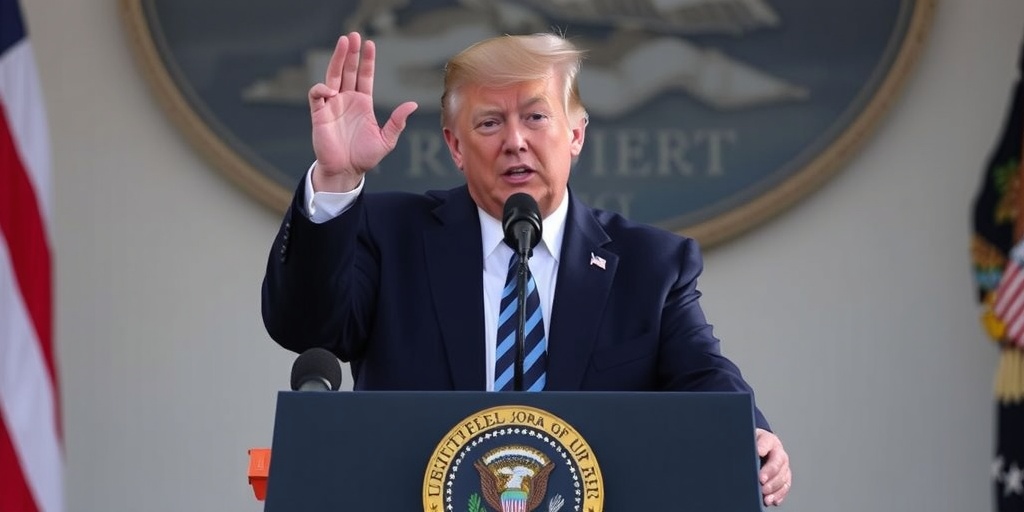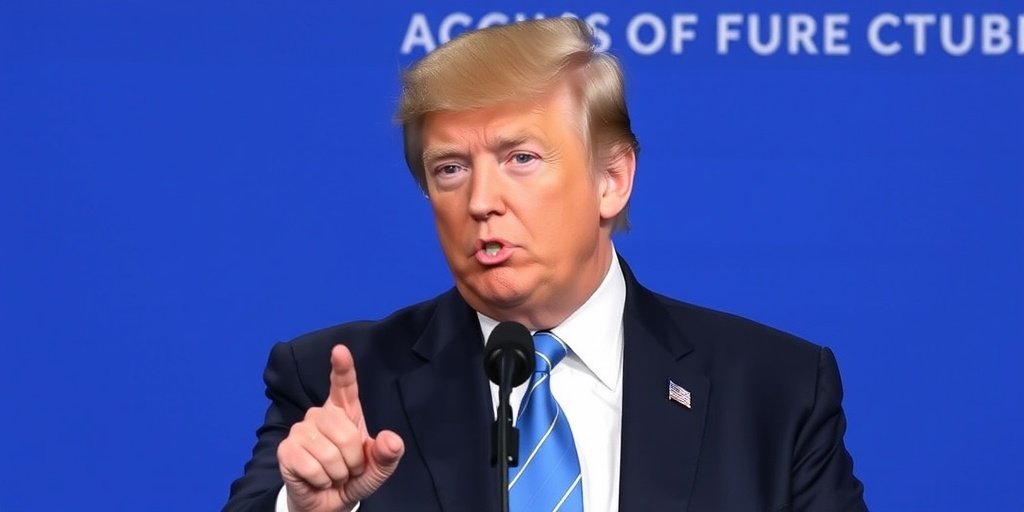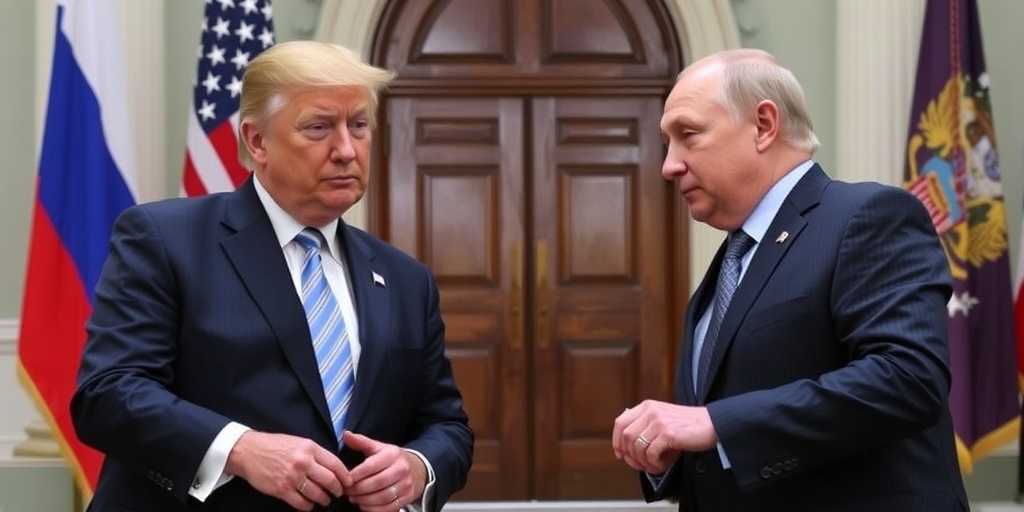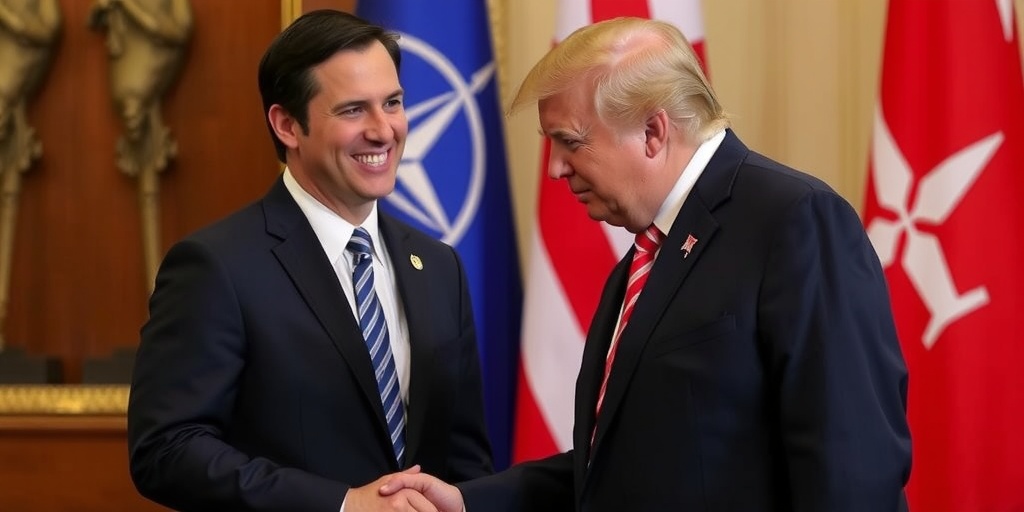Now Reading: Auto Tariffs Now in Effect, Raising New Car Prices
-
01
Auto Tariffs Now in Effect, Raising New Car Prices
Auto Tariffs Now in Effect, Raising New Car Prices

New Tariffs on Imported Vehicles Set to Impact Prices and Repair Costs
On Wednesday, significant tariffs on imported vehicles took effect, marking a pivotal shift in U.S. trade policy that President Trump argued would stimulate investments and create jobs domestically. However, various analysts have cautioned that the tariffs could lead to a substantial rise in new car prices, potentially adding thousands of dollars to the cost of vehicles.
The newly implemented 25 percent duty applies to all cars assembled outside of the United States. Consumers can expect to see the repercussions of these tariffs reflected in new vehicle prices almost immediately. Starting on May 3, the tariffs will also extend to imported auto parts, further complicating matters by escalating the overall cost of domestic vehicle assembly and auto repairs nationwide.
To offer some relief, there is a partial exemption for vehicles manufactured in Canada or Mexico. Cars that meet the stipulations of existing free trade agreements with those countries won’t incur tariffs. Additionally, car manufacturers will be spared duties on specific components—such as engines, transmissions, and batteries—produced in the U.S. and utilized in vehicles assembled in Mexico or Canada. This measure is meant to alleviate some financial burden, particularly for models like the Chevrolet Equinox electric vehicle, which is assembled in Mexico but incorporates significant domestic content.
Despite these exemptions, analysts predict that the tariffs will still impose considerable costs on U.S. vehicle manufacturers and consumers. Car manufacturers will face increased expenses due to the cheaper components that are often sourced from abroad. As a result, the tariffs are likely to negatively impact the cost of vehicles manufactured in states such as Michigan, Tennessee, and Ohio, where many car factories rely on imported parts that can comprise over half the total vehicle cost.
For instance, some models of Mercedes-Benz manufactured in Alabama have been reported to utilize imported engines and transmissions that account for approximately 90 percent of their value, presenting a significant challenge as tariffs are applied to these imported components. Similarly, the cost burden will differ significantly from one vehicle to another. Cars made in the United States with a higher ratio of domestic parts, such as the Tesla Model Y, produced in Texas and California, or the Honda Passport made in Alabama, will incur lesser tariffs. Conversely, models like the Toyota Prius from Japan or luxury Porsche sports cars from Germany will be among the hardest hit by the new tariff regime due to their foreign manufacturing base.
The impact of these policies isn’t limited to new car purchases. Consumers who choose not to buy new vehicles will also feel the effects, as the price of vehicle maintenance will likely escalate. Essential parts like tires, brake pads, and oil filters are anticipated to cost more as auto repair businesses grapple with rising expenses passed along from their suppliers. Michael Holmes, co-chief executive of Virginia Tire and Auto, expressed concern over the sustainability of absorbing these increased costs initially, remarking that it would ultimately be "magical thinking" to believe that businesses would not pass these expenses onto consumers.
The longer-term implications of the tariffs could extend beyond new car prices. Analysts warn that this could lead to a spike in used car prices as more consumers may opt for second-hand vehicles due to the unaffordability of new cars. Moreover, rising repair costs from the tariffs could potentially increase insurance premiums since maintaining a vehicle will become more expensive.
The enactment of these tariffs embodies a significant transformation in U.S. auto policy, with wide-ranging implications for both consumers and the auto industry. As these tariffs take hold, their true impact will become clearer over time, affecting new and used car markets, repair costs, and ultimately, the greater economic landscape surrounding the American automotive industry. The intertwining of tariffs with vehicle pricing and auto repairs represents a critical challenge that both consumers and car manufacturers will navigate in the coming months and years.
Stay Informed With the Latest & Most Important News
Previous Post
Next Post
-
 01New technology breakthrough has everyone talking right now
01New technology breakthrough has everyone talking right now -
 02Unbelievable life hack everyone needs to try today
02Unbelievable life hack everyone needs to try today -
 03Fascinating discovery found buried deep beneath the ocean
03Fascinating discovery found buried deep beneath the ocean -
 04Man invents genius device that solves everyday problems
04Man invents genius device that solves everyday problems -
 05Shocking discovery that changes what we know forever
05Shocking discovery that changes what we know forever -
 06Internet goes wild over celebrity’s unexpected fashion choice
06Internet goes wild over celebrity’s unexpected fashion choice -
 07Rare animal sighting stuns scientists and wildlife lovers
07Rare animal sighting stuns scientists and wildlife lovers





















